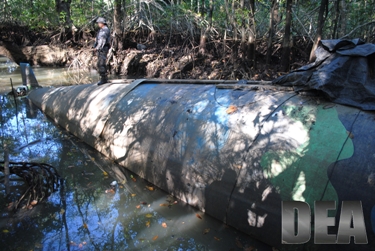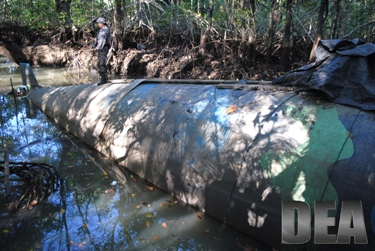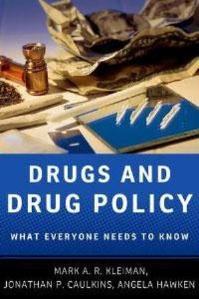Source and Transit Countries
Drug Trafficking Organizations Enriched by Prohibition Muscle Into New Territory: Central America
Venezuelan Drug Trafficker, Walid Makled, Says Chávez Government Officials Tied to Cocaine Trade
Authorities in Awe of Drug Trafficking Organizations' Jungle-Built, Kevlar-Coated Supersubs
How Afghan Poppy Eradication Efforts Are Helping the World's Largest Heroin Dealers
Colombia's FARC May Inherit Hundreds of Men from Slain Drug Lord
Drugs Are a Development Issue - Which is Why We Should Legalize Them (Opinion)
Flood of Drugs from Myanmar: Is War Brewing?
Mexican President Calls for Drug Legalization Debate
After presiding for years over the bloodiest drug war escalation in history, Mexican President Felipe Calderon is finally ready to discuss legalization.

What's the Big Deal About Narco-Subs?
The DEA is proud of having helped Ecuadoran authorities capture this "narco-sub":

Silly DEA -- don't they realize what the implications are, of drug traffickers having the wherewithal to operate a submarine? It means they have effectively unlimited resources to devote to the task of finding a way to get their product from point A to point B, and to reducing the cost associated with doing so. If it's not over the border, it's under it. If it's not by air, it's on the sea. If not on the sea, then under the sea -- using narco-subs. Apparently lots of narco-subs:
Oh, and don't forget, if not here, then there. Silly DEA. Random thought on the DEA photograph: Does this remind anyone else of Yoda in the jungle on his planet, using the force to lift the damaged spacecraft, Empire Strikes Back movie?
